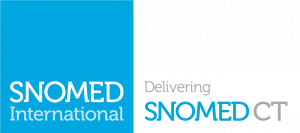INSERM & SNOMED release SNOMED CT to Orphanet map supporting representation and use of rare disease content in EHRs
In February 2020, Inserm and SNOMED International renewed their relationship governing the rare disease content included in SNOMED CT.
LONDON, UNITED KINGDOM, November 1, 2021 /EINPresswire.com/ -- In February 2020, the Institut national de la santé et de la recherche médicale (Inserm) and SNOMED International renewed their relationship governing the rare disease content included in SNOMED CT. With an objective to improve the visibility of rare diseases in terminologies and promote interoperability among different codification and terminology systems, both organizations are pleased to announce the production release of the SNOMED CT (RF2) to Orphanet (human readable) map.The SNOMED CT to Orphanet Map Release is the product of a joint project carried out under the renewed 2020 Inserm and SNOMED International collaboration agreement. Based on an agreed priority set, new concepts for rare diseases as defined in Orphanet (clinically defined entities occurring in less than 1 in 2,000 inhabitants) have been added to SNOMED CT, and a map created from SNOMED CT to Orphanet.
One of the key use cases for this standardized map is to meet European Union (EU) requirements to implement ORPHA codes in health systems for Rare Diseases epidemiology and research, including use in registries, enabling linkage from SNOMED CT enabled Electronic Health Records (EHRs), and supporting cross-border interoperability with International Classification of Disease (ICD)-based coding systems.
Inserm is the only public research organization in France entirely dedicated to human health operating under the joint authority of the French Ministry of Health and the National Institute of Health and Medical Research. Inserm’s objective is to promote the health of all by advancing knowledge about life and disease, treatment innovation, and public health research. Orphanet, the Inserm unit dedicated to knowledge on rare diseases, maintains the Orphanet nomenclature of rare diseases (ORPHA codes) and provides a multilingual database of information related to rare diseases and orphan drugs.
SNOMED CT is the world’s largest clinical terminology, representing a collection of more than 350,000+ clinical concepts and built upon ontological principles, particularly useful when applied in research and planning capacities. SNOMED CT’s primary purpose is to support all healthcare professionals in their recording and sharing of detailed patient information within EHRs and across healthcare communities globally.
The two organizations plan to publish the SNOMED CT to Orphanet map annually in the October timeframe. The map will be extended over the coming years to include further Rare Diseases included in Orphanet. Resources supporting the SNOMED CT to Inserm map include the October 2021 Release Notes. Additionally, editorial guidance for SNOMED CT content is found in the SNOMED CT Editorial Guide and editorial guidance for Orphanet Nomenclature of Rare Diseases can be found in Orphanet.
Access to the human readable map is made available from Inserm from www.orphadata.org, and the RF2 version from SNOMED International for Members and Affiliates from the organization’s Member Licensing and Distribution Service.
Visit www.snomed.org, Inserm and Orphanet for more information.
About Orphanet
Orphanet is a unique resource, gathering and improving knowledge on rare diseases so as to improve the diagnosis, care and treatment of patients with rare diseases. Orphanet aims to provide high-quality information on rare diseases, and ensure equal access to knowledge for all stakeholders. Orphanet also maintains the Orphanet rare disease nomenclature (ORPHAcode), essential in improving the visibility of rare diseases in health and research information systems.
Orphanet was established in France by the INSERM (French National Institute for Health and Medical Research) in 1997.This initiative became a European endeavour from 2000, supported by grants from the European Commission: Orphanet has gradually grown to a Consortium of 40 countries, within Europe and across the globe.
Orphanet makes available its datasets for the research community via the platform www.orphadata.org, which is recognised as an ELIXIR Core Data Resource, and IRDiRC Recognised Resource.
Contact details: media.orphanet@inserm.fr
Kelly Kuru
SNOMED International
+1 416-566-8725
email us here
Legal Disclaimer:
EIN Presswire provides this news content "as is" without warranty of any kind. We do not accept any responsibility or liability for the accuracy, content, images, videos, licenses, completeness, legality, or reliability of the information contained in this article. If you have any complaints or copyright issues related to this article, kindly contact the author above.


